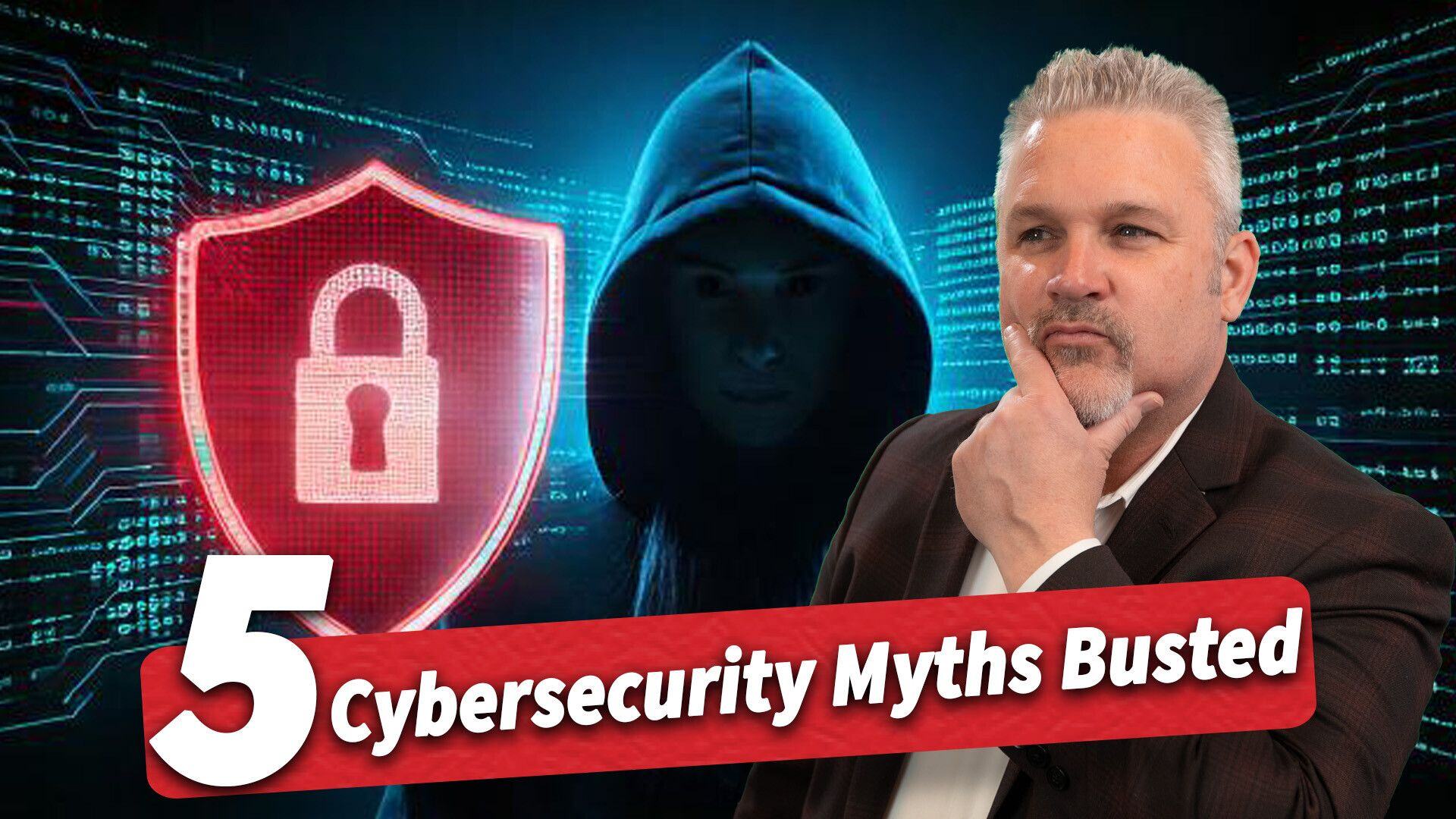
Do you think your antivirus is enough? Or that hackers only target big businesses? In this video, we bust the most common cybersecurity myths that could be putting your data at risk. We’ve got the facts you need to stay protected. Don’t miss out on these essential cybersecurity truths!
Is antivirus software enough to protect you from cyberattacks? Or maybe you believe hackers only go after big businesses? If so, you're not alone—these are some of the most common cybersecurity myths that can leave your personal or business data vulnerable. In this article, we'll break down these myths and give you the facts you need to stay protected.
Myth #1: "I'm too small to be hacked"
It’s easy to assume that only large corporations are targeted by cybercriminals, but that’s far from the truth. In fact, 43% of cyberattacks target small businesses. Why? Smaller businesses often don’t have the sophisticated security systems that larger companies invest in, making them easier targets.
Whether you're running a small boutique or freelancing from home, you're still on hackers' radars. A cyberattack can cost your business a lot more than money—your reputation and customers’ trust are on the line too. That’s why it’s essential to treat cybersecurity as a priority, regardless of your company size.
Myth #2: "Antivirus software is all I need"
Antivirus software is a great first line of defense, but relying on it alone is risky. Antivirus programs are designed to catch known threats, but new and emerging threats, known as zero-day attacks, can slip through undetected.
Think of your antivirus software as a lock on your front door. Sure, it helps keep things secure, but if you leave your windows wide open, you’re still vulnerable. To stay ahead, you need a layered approach to security. This includes:
- Firewalls
- Encryption
- Real-time monitoring
These extra layers of protection make it much harder for cybercriminals to find a way into your system.
Myth #3: "Strong passwords are foolproof"
We’ve all been told how important strong passwords are, and while a 16-character randomly generated password is a good start, it’s not invincible. Cybercriminals can use phishing attacks or other social engineering techniques to trick you into handing over your password.
Even if your password hasn’t been compromised through phishing, if it's exposed in a data breach, it could be reused across multiple platforms. This is where two-factor authentication (2FA) comes in. By adding a second layer of security—like a text message code or an authentication app—you significantly reduce the risk of unauthorized access to your accounts.
Myth #4: "Public Wi-Fi is safe if I'm not doing anything important"
Many people believe they’re safe using public Wi-Fi if they're just checking the news or browsing social media. Unfortunately, this couldn’t be further from the truth. Hackers love public Wi-Fi networks because they can easily set up fake hotspots or use man-in-the-middle attacks to intercept your data.
Even if you’re only casually browsing, your personal information could still be exposed. That’s why using a VPN (Virtual Private Network) is so important. A VPN acts as a shield, encrypting your internet connection and keeping your data safe, no matter what network you're connected to.
Myth #5: "Cybersecurity is only the IT department’s responsibility"
It’s easy to think that cybersecurity is just an IT issue, but the truth is that 95% of cybersecurity breaches are due to human error. Your IT team can put the best tools and systems in place, but one wrong click on a phishing email can open the door to an attack.
Cybersecurity is everyone's responsibility. Employees at all levels should be educated on best practices, such as recognizing phishing attempts, using strong and unique passwords, and following security protocols. A team that’s well-trained in cybersecurity is your best defense against potential threats.
Conclusion: Busting Cybersecurity Myths Keeps You Safe
Now that you know the truth behind these common cybersecurity myths, you can take action to protect yourself and your business. Staying vigilant, adopting a layered security approach, and ensuring that everyone in your organization understands their role in protecting data will help keep cyberattacks at bay.
If you want to learn more about how to enhance your cybersecurity measures, feel free to get in touch with us at AIS-NOW.com. Together, we can help you worry less and stay secure in an increasingly digital world.
Cliff is a multi-talented individual with a profound passion for creativity and storytelling. As a photographer/videographer, he possesses a keen eye for detail, capturing the essence of moments, and creating high-quality images and videos. As an award-winning editor, his expertise lies in seamlessly weaving vivid stories and narratives that captivate audiences and bring ideas to life. When he isn’t honing his craft, he spends time with his family or watching B-movies.
Topics:

